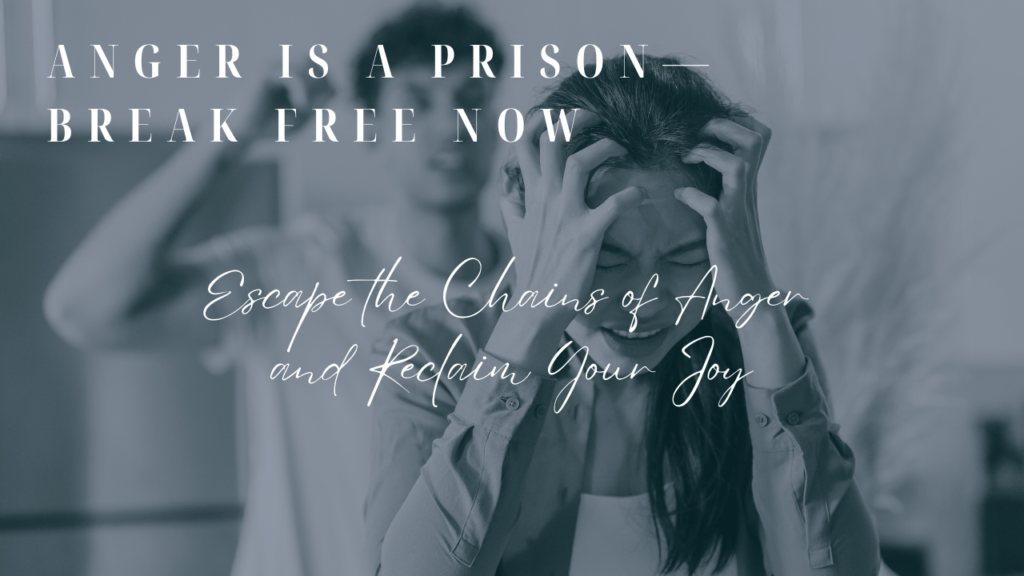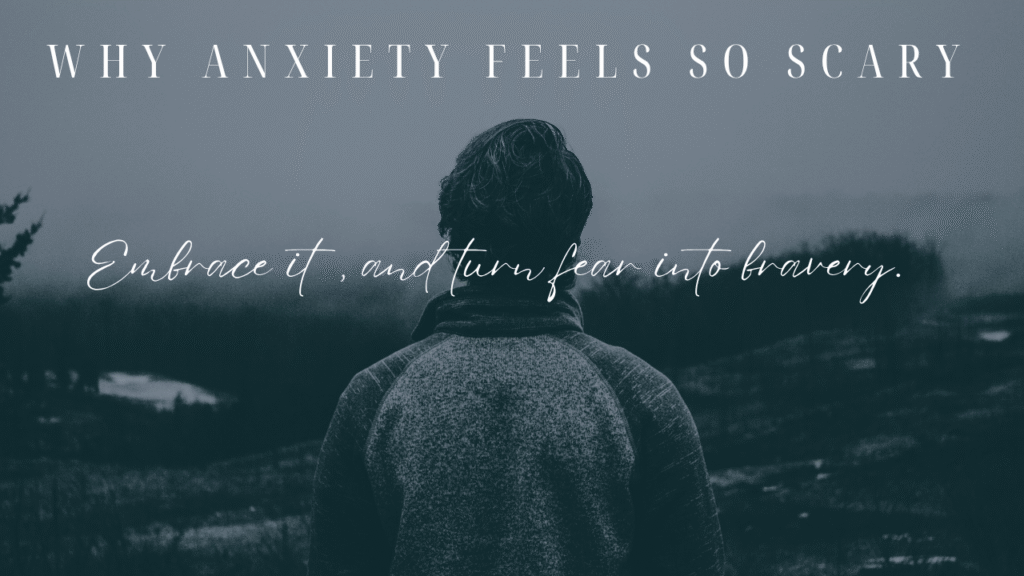Anger has a way of convincing you that you’re in control, that you’re the one holding the power in the room. It makes your voice louder, your chest tighter, and your reactions feel justified. It fuels your sense of being right, of being wronged, of needing to be heard. But what it rarely shows you, until far too late, is how completely it’s holding you hostage. Anger is not a tool you get to wield without cost—it’s a cage you eventually find yourself locked in, even if you were the one who built it.
It doesn’t always start loud. Sometimes it’s that simmering resentment that you keep stuffing down because you’re trying to be “mature” or “Christian” about it. You say you’re fine. You smile. You go on with your day. But underneath, the grudge is still growing roots. You feel it when you see that person again, when they speak, when they get praise or a blessing that you don’t think they deserve. It eats at you slowly. Or maybe for you it is loud. Maybe your anger has been a constant companion, the only thing that ever made you feel safe, strong, respected, or protected from getting hurt again.
Either way, it’s a prison. And you won’t know just how much freedom you’ve lost until you try to live without it.
Anger Pretends to Protect You, But It Keeps You Wounded
One of the biggest lies anger tells is that it’s protecting you. That it’s there to keep you from getting hurt again. That it helps you “stand your ground” or “not let people walk all over you.” And yes, there’s such a thing as righteous anger. Yes, boundaries matter. But most of what we call boundaries is just bitterness with a better outfit. Most of what we call righteous anger is just regular anger we’re trying to baptize so we can hold onto it without guilt.
The truth is, anger hardens your heart more than it guards it. It doesn’t just block the pain—it blocks everything. It numbs you, isolates you, poisons your relationships, and distorts the way you see other people. It turns every disagreement into a threat, every misunderstanding into betrayal, every challenge into war. It won’t just stay in one area of your life either—it spreads. You start snapping at the people who love you. You start assuming the worst. You stay on edge, justifying your sharpness as “not taking any more nonsense,” when what’s really happening is that anger is running the show and calling it wisdom.
You’re not strong when you’re angry. You’re just armored. And armor gets heavy. It’s exhausting carrying all that around every day.
Anger Grows Best in Unforgiveness
You want to know where anger really finds its fuel? Unforgiveness. It loves old wounds. It loves moments you’ve replayed in your head a thousand times, especially the ones where you didn’t get closure, justice, or even an apology. It thrives on the unfinished. And the longer you nurse it, the more it shapes the way you see yourself and everyone else.
You begin to interpret current events through past pain. Someone says something small and you react like they declared war—because your anger isn’t really about this moment, it’s about the moment five years ago that still hasn’t healed. But anger won’t tell you that. It just tells you to defend, deflect, retaliate. And it feels right in the moment, but all it does is dig the hole deeper.
Forgiveness is the only way out, but it doesn’t feel fair. It feels like letting them off the hook. It feels like losing. And that’s the trap. You think holding on is power. You think letting go is weakness. But the truth is, forgiveness is the key that unlocks the cell. Not for them—for you. And if you’re tired of being angry all the time, that’s where the work begins.
You Can’t Heal What You Won’t Name
Sometimes the anger you’re carrying isn’t even anger—it’s grief in disguise. It’s sadness that wasn’t allowed to be expressed. It’s hurt that got pushed aside. It’s disappointment that was never spoken. And now it’s calcified into rage because you didn’t know what else to do with it. But it didn’t go away. It just changed form. And now it’s leaking into your life, your relationships, your self-talk, your faith.
To break free, you have to name it.
You have to get real about what’s underneath it all. Not just the surface triggers—the traffic, the disrespect, the careless comments. But the deeper roots. The wound that made your fuse short. The unmet need that keeps showing up as resentment. The fear that no one really sees you or values you, so you fight to be heard. When you name the source, you take away some of its power. You bring it into the light where healing can actually start.
God doesn’t heal what you pretend isn’t there. And He doesn’t shame you for naming it either. You don’t have to put a spiritual filter on your pain for Him to meet you in it. He’s not afraid of the mess. He just wants it out of the dark.
Freedom Starts Where Surrender Begins
If you’re going to break free, you have to want freedom more than you want to be right. You have to want healing more than you want vindication. You have to be willing to let God deal with the people who hurt you—and stop replaying it in your mind like you’re the judge, the jury, and the executioner.
That’s hard. Especially if they never owned it. Especially if they’re still living like nothing happened. But your freedom doesn’t depend on their repentance. It depends on your surrender.
This doesn’t mean you minimize what happened. It doesn’t mean you act like it didn’t matter. It means you stop letting it define you. It means you stop building your personality around pain. It means you choose to trust that God is better at justice than you are, and that He can deal with the brokenness in them while healing the brokenness in you.
You don’t have to carry it anymore. You’re allowed to set it down.
You’re allowed to breathe again.
The Fruit of Letting Go Is Peace
When you finally lay down your anger—not just manage it, but release it—you’ll start to feel something you might not even remember how to name: peace. Not numbness. Not avoidance. But actual peace. That settled, unshakeable steadiness that doesn’t rise and fall with how people treat you or how situations unfold.
You won’t get there overnight. It’s a process. But you’ll begin to notice the shift. Less defensiveness. Less blame. Less inner chaos. And more clarity. More compassion. More room for joy, for connection, for growth.
And here’s the kicker—you’ll actually become stronger. Not the kind of strong that needs to shout or dominate or cut people off. But the kind that knows how to stand without screaming. The kind that knows how to forgive without forgetting boundaries. The kind that knows how to walk away from the fire without needing to burn the whole place down first.
You won’t be afraid of your emotions anymore. And you won’t be ruled by them either.
You’ll be free.
And once you taste that freedom, you’ll never want to go back.



